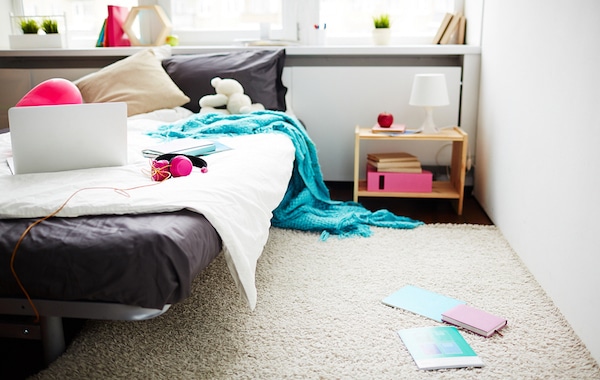
Chores build responsibility. But how to get kids to do them?
Build Structure
It all starts with structure. Part of the problem with chores, as anybody who’s ever heard (or said) “I’ll do it later!” is time management. We all know that chores seem like they’ll take longer than they actually do and that it’s more fun to watch TV and text friends. So, build some structure into the day. Set aside a block of time, every day, that’s “chore time” for the whole family. Create a rotating chore schedule so nobody’s doing the same thing at the same time every day. Or set up a game structure where whoever does the most chores for the month wins a prize. It doesn’t need to be rigid, but structure decidedly helps.
Explain Why Chores Are Good
Some kids are obstinate, true, but more often than not, kids are like adults in that they don’t like doing boring things that they don’t understand the motivation for. Imagine explaining your day to your eight-year-old self. Would they jump for joy at the idea of attending meetings, doing laundry, or waiting in line at the DMV? Probably not! But we do these things for what they get us, and if kids have an understanding that they’re building skills and that a cleaner house is a good thing, they’re more likely to get behind the idea of chores.

Hard work leads to rewards.
Tie Chores To Rewards
A good way to resolve two parenting tasks at once is to tie rewards like time with screens to chores done. You can do this any number of ways; every hour of chores can be “paid” with a set amount of screen time. Or a certain number of chores done leads to a day out at the movies, or more time with friends, or any of a set number of other things kids want. The idea is to get them associating chores with good things, not punishment.
Do Your Chores
Every parent knows all too well kids imitate what they see from the adults around them. If dishes pile up in the sink and the yard goes unraked, kids will assume that housework is somebody else’s job. After all, you don’t do it, why should they? So, if you want your kids to do their chores, you have to ensure you’re getting yours done. This shouldn’t be a source of guilt, however; you shouldn’t be scrubbing toilets while running a fever. Just make a point of setting a good, healthy example.
Chores will always probably be a point of disagreement, no matter how in-step the family is, and no matter how carefully you structure time and set up ways to do it. Push comes to shove; nobody enjoys chores, just the things they do during chores. But with a little conversation and a little agreement, everybody can pitch in and get the house clean. One thing that helps? Taking screens off the table until chores are done. Sign up for Screen Time now!

Join the conversation